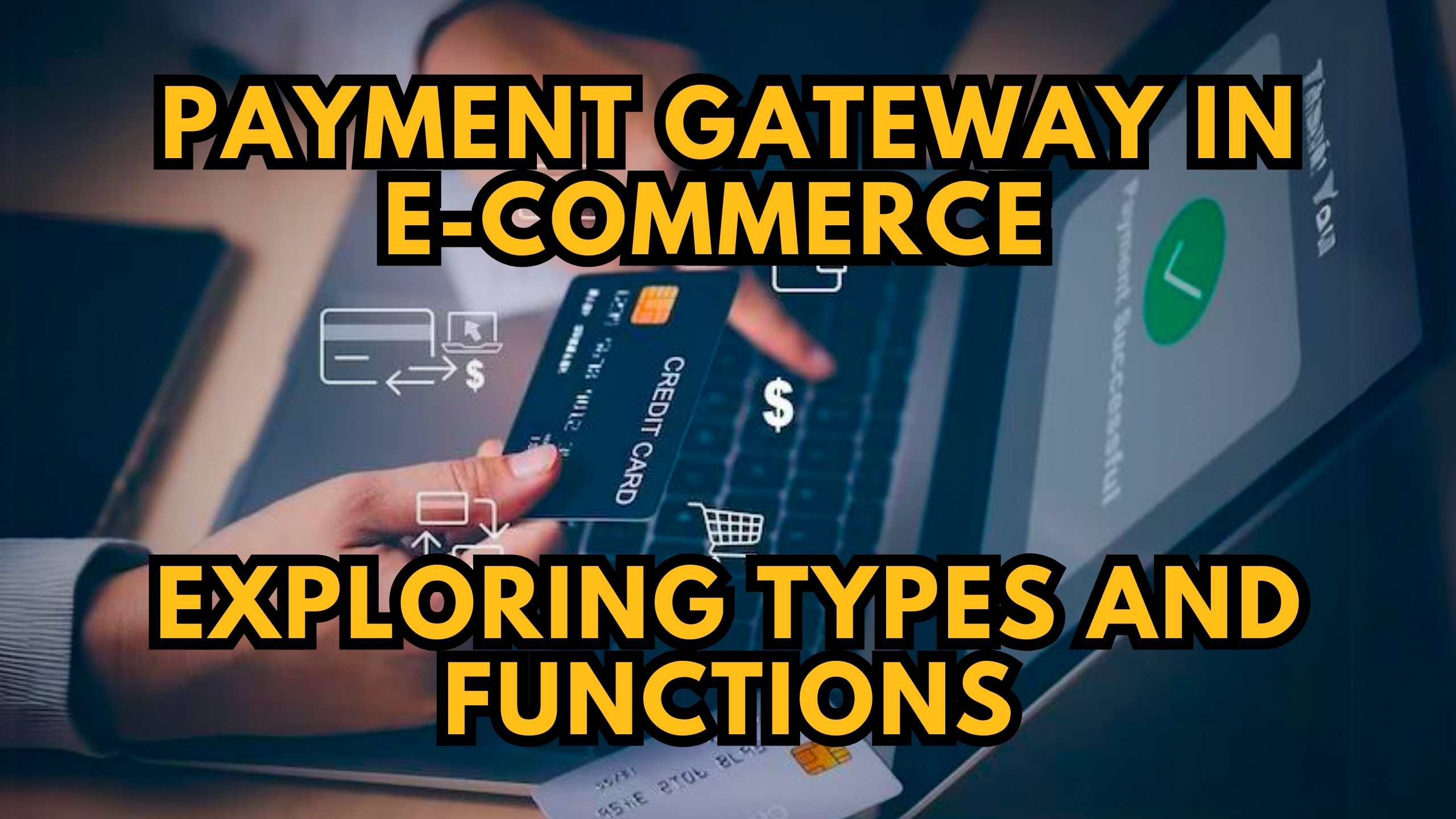Payment Gateway in E-commerce: Exploring Types and Functions


Payment Gateway in E-commerce: Exploring Types and Functions
In the ever-evolving landscape of e-commerce, the payment gateway stands as a pivotal element, facilitating seamless transactions between buyers and sellers. Join us as we delve into the intricacies of payment gateways, unraveling their types, functions, and the SaaS products that elevate the e-commerce payment experience.
Understanding the Essence of Payment Gateways
In the realm of e-commerce, payment gateways serve as the digital bridge that enables secure and swift monetary transactions. These gateways authorize payments, acting as the virtual point-of-sale terminals that ensure the financial integrity of online transactions.
Types of Payment Gateways
1. Hosted Payment Gateways
Hosted payment gateways redirect customers to an external page to complete transactions securely. Popular examples include Stripe and PayPal, which offer a seamless and secure checkout process, reducing the merchant’s burden of handling sensitive payment data.
2. Self-Hosted Payment Gateways
Self-hosted gateways provide a more customizable payment experience, allowing merchants to retain control over the entire checkout process. Authorize.Net is a prime example, offering a robust solution for businesses seeking flexibility and customization in their payment workflows.
3. API-Integrated Payment Gateways
API-integrated gateways, like Braintree and Square, seamlessly integrate with the merchant’s website or application. This type of gateway provides a more streamlined and branded checkout experience while ensuring security through direct API connections.
Functions of a Payment Gateway
- Authorization and Authentication: Payment gateways play a pivotal role in authorizing transactions, ensuring that the customer has the necessary funds and verifying the authenticity of the payment.
- Encryption and Security: Security is paramount in e-commerce, and payment gateways employ advanced encryption protocols to safeguard sensitive customer information, offering a secure environment for online transactions.
- Payment Processing: Facilitating the actual transfer of funds is a core function of payment gateways. They ensure that the funds move seamlessly from the customer’s account to the merchant’s account, minimizing delays in the payment cycle.
- Fraud Prevention: Payment gateways employ sophisticated algorithms and fraud detection mechanisms to identify and prevent fraudulent transactions, safeguarding both merchants and customers.
Relevant SaaS Products for Enhanced Payment Experiences
- Stripe: Renowned for its simplicity and developer-friendly interface, Stripe offers a seamless payment processing experience, ensuring swift and secure transactions.
- PayPal: As a pioneer in online payments, PayPal remains a trusted choice for businesses and customers alike, providing a reliable and user-friendly payment gateway.
- Authorize.Net: Offering a comprehensive suite of payment solutions, Authorize.Net empowers businesses with customizable, secure, and efficient payment processing.
- Braintree: A subsidiary of PayPal, Braintree specializes in mobile and web payment systems, providing businesses with flexibility and scalability in their payment processing.
- Square: Known for its user-friendly interface, Square caters to businesses of all sizes, offering integrated payment solutions that enhance the overall checkout experience.
Conclusion: Elevating E-commerce Transactions with Innovation
As we conclude this exploration of payment gateways, it’s evident that these digital enablers play a crucial role in shaping the e-commerce landscape. Embracing innovative SaaS products amplifies the payment experience, ensuring that businesses and consumers navigate the digital marketplace seamlessly.
Ready to Transform Your Payment Experience?
Unlock exclusive deals on top SaaS tools with Subscribed.fyi. Sign up today to revolutionize your payment processing, streamline your operations, and stay ahead in the competitive e-commerce sphere.
Relevant Links:








